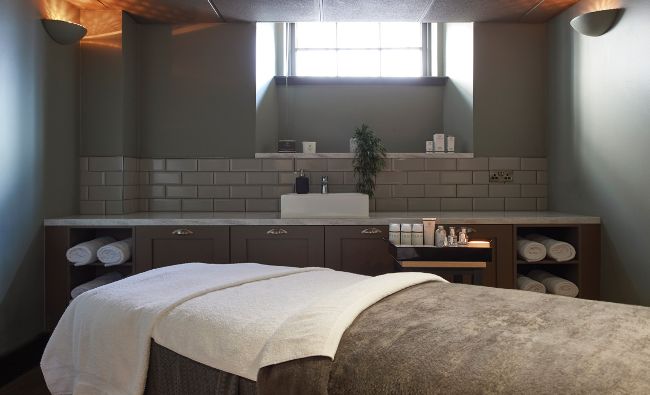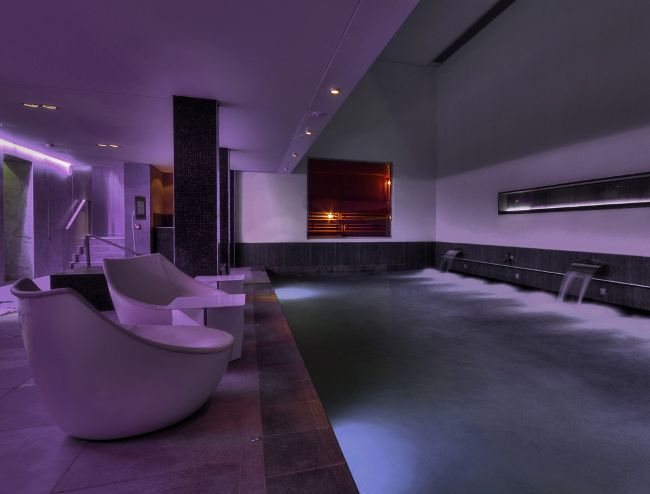Interview
Talking to... Finlay Anderson
The InterContinental Hotels Group’s first area spa and leisure director for UK North tells Amanda Pauley how he is streamlining protocols to turn the company’s eight northern spa sites into profitable wellness experiences
In late 2020, Finlay Anderson was appointed the InterContinental Hotels Group’s (IHG) first area spa and leisure director for UK North, with the goal of bringing a streamlined approach across eight spa and leisure sites in the company’s managed and leased estate, which include Kimpton Blythswood Square in Glasgow, Kimpton Charlotte Square Hotel in Edinburgh, St. David’s in Cardiff and Principal York.
It’s a big task – both operationally and geographically – made even more challenging by coronavirus, which is having a devastating impact on the UK spa industry. However, Anderson believes he can bring a joined-up vision to the business’s spa offering so that it comes out of the Covid-19 pandemic strong.
“The spas in the IHG collection are all very individual, which is nice, but from a brand standards, systems and commercial point of view, nothing joins up or makes sense. In my new role, I’ll be looking at the spas’ operating standards, brand partners, marketing, product houses and more, making sure it’s streamlined across all sites,” explains Anderson.
“This is the first time IHG will have someone with an overseeing spa knowledge driving all the cogs from a commercial and standards angle to really push this element of the business forward. It’s a big opportunity.”
It’s not surprising that Anderson was chosen for the job. With 20 years’ industry experience, having previously worked as UK leisure and spa operations manager at The QHotels Group, group leisure and beauty manager at The Hotel Collection and most recently with IHG as the spa director for Kimpton Blythswood Square Hotel, he understands the potential within hotel spas all too well.
“Spa is a fairly new thing for IHG – there’s a growing awareness and interest in it from both a commercial and wellness point of view. I think IHG looked at what we achieved at at Blythswood Square and saw that as a standalone thing, spa could produce. A lot of the group’s general managers haven’t seen that before,” says Anderson.
Setting the tone
“At Blythswood, we didn’t have a residential strategy for the spa because the hotel had a good rate anyway. The spa has a separate identity as a profitable day spa with a high occupancy and that’s what I want to recreate across the group. I also want to do a strategic shift away from clients coming to us just for a treatment, moving to a wellness experience where they come for a purpose.”
Covid -19 has heightened anxieties and we
believe that as guests emerge from lockdown they will seek a more
unique experience than they did
before
The first thing Anderson is looking to implement is a central reservations team across the group to deliver the best experience for guests. “Our incoming calls have almost doubled in length during the pandemic as guests want to know what we are responding to Covid-19 with – how the spa experience will be different, what treatments they can and can’t have and what our new protocols are,” he explains. “By standardising this, we can ensure we’re delivering a five-star service, no matter which site clients are visiting.”
Although each site has different facilities due to the variation in property sizes, Anderson plans to make the wellness protocols identical across the group, starting by working with the chefs to make sure the food offering isn’t just about indulgence, such as afternoon tea, but that there’s a good wellness option with superfoods too.
“Covid-19 has heightened anxieties and we believe that as guests emerge from lockdown they will seek a more unique experience than they did before as they attempt to reconnect with the world around them,” he says. As such, the group is now looking to develop non-therapist-led experiences in a bid to deliver a more holistic approach to mindfulness in the spa environment.
A new way of working
“The Spa at Blythswood is our flagship and the first to be changing towards a more wellness-focused offering. Not only are we going to introduce a cold experience such as a snow shower or ice room to enhance the thermal facilities, but we’re also converting one of the treatment rooms into a sensory room which will have sound therapy, light therapy and aromatherapy,” says Anderson.
This non-therapist-led experience is being introduced not just because social distancing will put pressure on what spas can and can’t offer for some time, but also because it ties in with the group’s new model of a wellness experience – where guests can get more without the rate of the package increasing drastically, and also allowing therapists time to reground and re-energise between treatments.
“A quick turnaround time in treatment takes away from the therapist’s time with the guest, which is where the trust is built and some additional retail comes from. It also puts such pressure on the staff. They need to look after themselves as well as the guest,” he says.

This image and above: A treatment room and the pool at Charlotte Square Hotel
The group is working with wellnesss company Open Minds on producing the sound therapy for the room, and Anderson hopes it can also create a bespoke soundtrack for the spa’s signature treatments, which will align with the ritual’s choreography, further enhancing the experience for guests.
The spa has also had great success in introducing CBD oil-infused treatments, and in the future, residential wellness could be on the cards too – “where guests stay in a specific hotel room that has CBD oil products in it, for example, that are based around the experience they are having in the spa,” explains Anderson. “It will all be prescribed for them to match the result they want.”
Juggling business needs
Despite these great plans, Anderson knows tough times lie ahead as Covid-19 continues to impact the business and that things could be paused as the UK goes in and out of lockdown. “Coronavirus has been horrendous for IHG’s business and for the industry in general,” he says. “We’ve had to rebuild our spa models based on far fewer people because of social distancing and it’s been tough.
“For example, in certain spas, we could have had 40 guests in before, whereas now we can only have 14 at a time. As such, we haven’t felt right charging clients full price – especially when the saunas and steam rooms haven’t been open for a while due to restrictions [pre-lockdown].”
Anderson tells me that spa revenue hasn’t got back to where it was before coronavirus, but the volume has been there every time they’ve reopened, “so, hopefully when things get back to normal, and we can charge our usual rate, this will balance itself out,” he says.
Anderson admits it’s also going to be challenging taking care of hotel guests while keeping the commercial day spa operation going. “We need to look at the volumes in each place and then balance the day spa and hotel guests. For example, if we have a hotel that’s starting to pick back up in occupancy on weekends then those guests may all want to come to the spa, but we also need to look after our day spa market too.”
There might also be a bit of a fight for investment from IHG going forward but luckily some of the sites already have investment earmarked, such as a wet side refurbishment at St. David’s and the changes at Blythswood, which promise to be impressive. PB

This image and above: Inside The Spa at Blythswood Square; a portrait of Anderson
KEY DATES
2002
Anderson joins David Lloyd in Bristol as health and fitness manager
2013
Becomes northern cluster leisure and spa manager at The Hotel Collection, overseeing eight hotel health clubs and spas in Scotland and North England
2014
Promoted to group leisure and beauty manager at The Hotel Collection
2016
Takes on the role of group leisure and spa operations manager at QHotels, looking after the leisure and spa departments of 10 four-star hotels
2018
Becomes spa director at Blythswood Square Spa in Glasgow
2020
Appointed IHG’s first area spa and leisure director for UK North and voted as one of PB’s Top 100 Industry Influencers